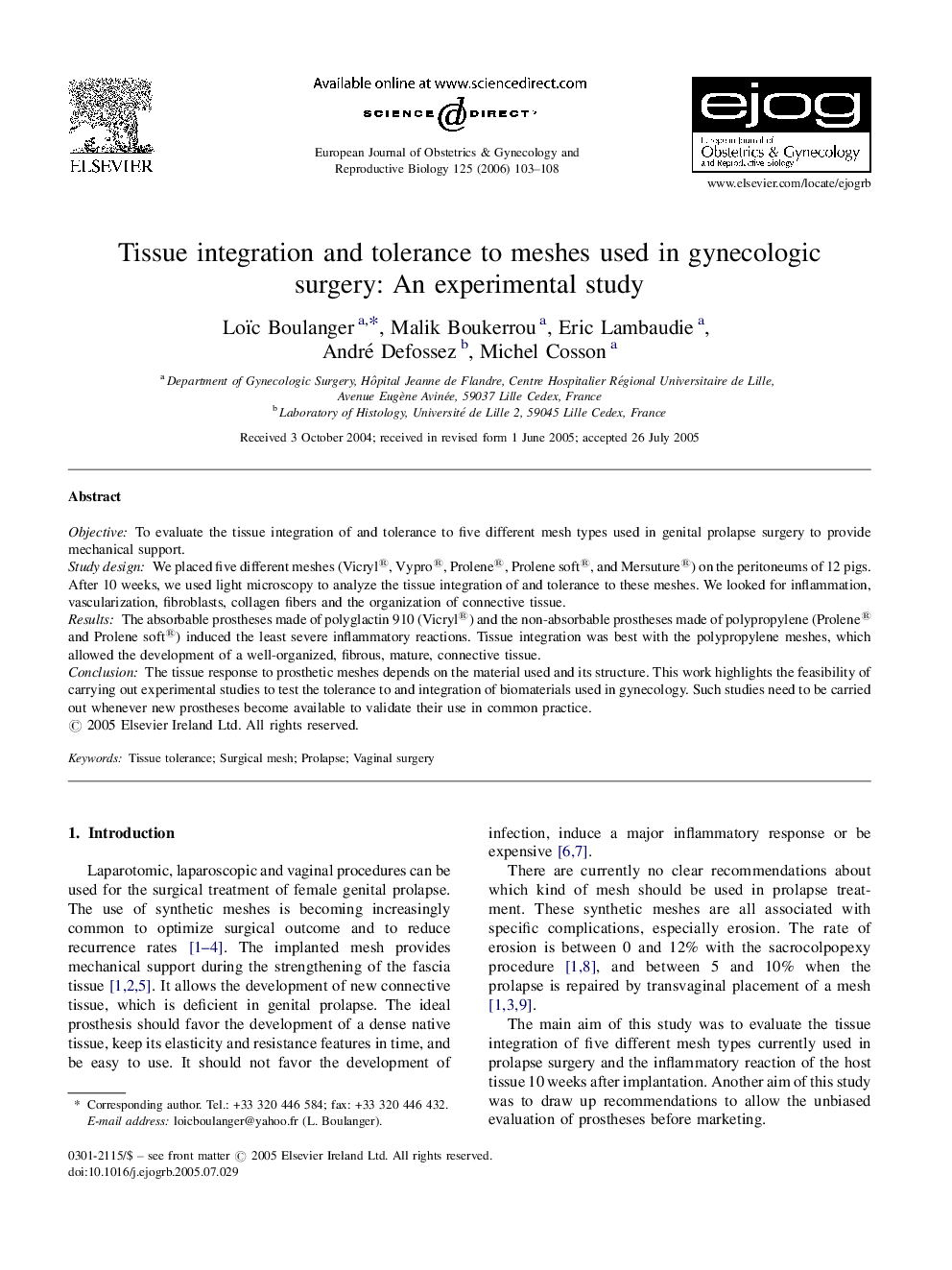| Article ID | Journal | Published Year | Pages | File Type |
|---|---|---|---|---|
| 3922594 | European Journal of Obstetrics & Gynecology and Reproductive Biology | 2006 | 6 Pages |
ObjectiveTo evaluate the tissue integration of and tolerance to five different mesh types used in genital prolapse surgery to provide mechanical support.Study designWe placed five different meshes (Vicryl®, Vypro®, Prolene®, Prolene soft®, and Mersuture®) on the peritoneums of 12 pigs. After 10 weeks, we used light microscopy to analyze the tissue integration of and tolerance to these meshes. We looked for inflammation, vascularization, fibroblasts, collagen fibers and the organization of connective tissue.ResultsThe absorbable prostheses made of polyglactin 910 (Vicryl®) and the non-absorbable prostheses made of polypropylene (Prolene® and Prolene soft®) induced the least severe inflammatory reactions. Tissue integration was best with the polypropylene meshes, which allowed the development of a well-organized, fibrous, mature, connective tissue.ConclusionThe tissue response to prosthetic meshes depends on the material used and its structure. This work highlights the feasibility of carrying out experimental studies to test the tolerance to and integration of biomaterials used in gynecology. Such studies need to be carried out whenever new prostheses become available to validate their use in common practice.
